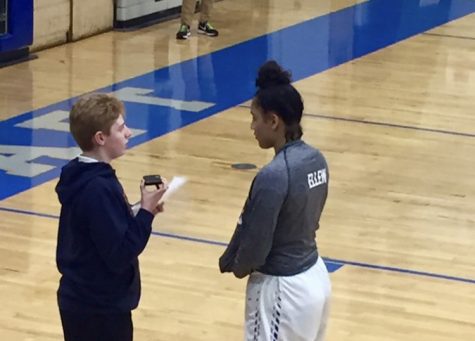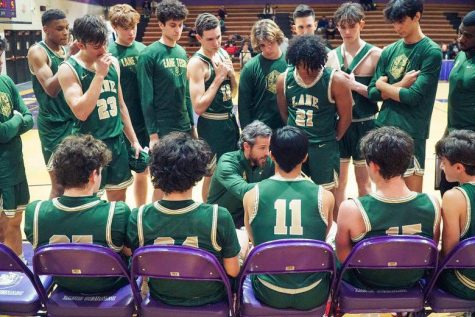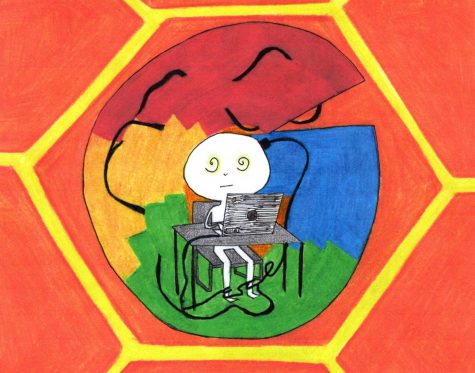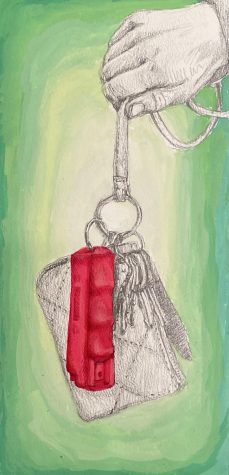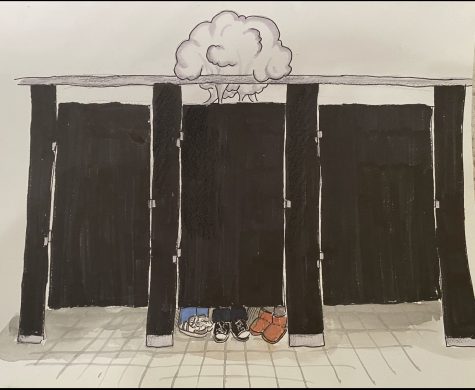Changing the expectations of the English curriculum one period at a time
Lane is a microcosm of the world, composed of thousands of different people at the same time, but from 8:00 a.m. to 3:15 p.m., everyone has something in common – the need to expand our knowledge of ourselves and the world. The power of a single story is evident in society, but the power of everyone’s story is what will allow the world to move towards change.
April Coleman, an English teacher at Lane, has been teaching for 24 years. Over 10 years ago she co-created a curriculum for African American Literature, believing that teaching African American writing and history was essential. Now, Coleman is teaching the new revolutionaries of Black Revolutionary Literature –– coining the new name based on the idea that the evolution of Black writing must include the revolutionary moments in history as well.
Coleman mentioned the importance of Black authors being included throughout literary courses in schools.
“Black Revolutionary Literature is essential,” Coleman said. “… if we really want progressive education, if that’s what we really want, if we really want to holistically educate a child … then that is going to be accomplished when you have literature courses, that reveal, illustrate and show the powerful writings, the powerful energy, the powerful love, the powerful humanity, within a group such as black people that have been historically in the United States, dispossessed, disenfranchised, etc. It’s necessary.
“To me, you’re not teaching literature, you’re doing something else. You’re teaching words … which are an illustration of how human beings live and breathe and experience their lives. You’re not teaching literature, unless you’re getting it from black and brown people as well,” Coleman continued.
Coleman’s curriculum and teaching style is one highly regarded by her students, past and present.
“Ms. Coleman’s teaching style is one that I’ve never seen since coming to Lane, or at any other school for that matter. Most teachers, I would say, are pretty boring,” senior Karson Spencer said. “But she has turned her teaching methods in a way that keeps everyone alive and lively in the class, and more engaged with her bubbly, and very outspoken personality that makes me want to learn more and want to come to the class and be on time.” It is rare to see the kind of passion and energy Coleman brings to a classroom, every day seemingly better than the last.
Historically, the majority of non-Black Americans don’t know much, if anything, about Black history and that if anything is dehumanizing in its simplest form. America must first be forced to acknowledge the humanity of black people and the truths of American history. That is the first step to change. Senior Braxton White mentions the importance of learning Black history in schools.
“We all know the quote ‘if we don’t learn about history, we’re gonna be doomed to repeat it.’ So if we don’t know about it, especially with me, I’m Black. It’s my history. And it’s all of our history in America. If we don’t know about it, what’s to stop it from happening again?” White said.
This shows why a well-rounded education is important. Black history is American history and if schools only teach one side of a story, then that is silencing the voice of a huge part of the American population. Coleman said that it’s important that all students have the opportunity to experience Black Revolutionary Literature.
“This class is not going to cover you, it is not going to baby you and it is not going to insult you. It is going to force you to look at your own humanity throughout the entire process and is going to force you to look at the ugly things that we have done, and look at the beautiful things that can be done,” Coleman said.
Acknowledging our humanity and the roles we play in society is a huge part of maturing and becoming functioning members of society. We must look at history and our society to then understand and acknowledge the history and experiences of others. If we never look at ourselves outwardly then that is to live ignorantly without knowledge of the impact your existence and actions have on the world. Our service to humanity is the rent we pay to be here.
“It’s gonna force you to reconcile yourself with the fact that your existence in this world and in this classroom is extremely significant,” Coleman said. “You have got to get that. And you are needed so much in the world. So take the class, because it’s really going to help you think about your place in the world.”
Thank you!! We met our goal for the 2023-24 school year! Your contributions covered our annual website hosting costs, which are no longer covered by our district/school. Student journalists at Lane Tech use this archive to research past coverage of various topics and link to past stories to offer readers additional context for current stories. Thank you for supporting the award-winning reporting and writing of journalism students at Lane Tech College Prep!
Background information on why the school district no longer allows our school to cover web hosting costs:
https://lanetechchampion.org/12583/uncategorized/special-coverage-impact-of-soppa-on-cps-students-teachers/
https://lanetechchampion.org/11702/opinion/staff-editorial-cpss-soppa-policy-is-choking-students-learning-and-the-champion/
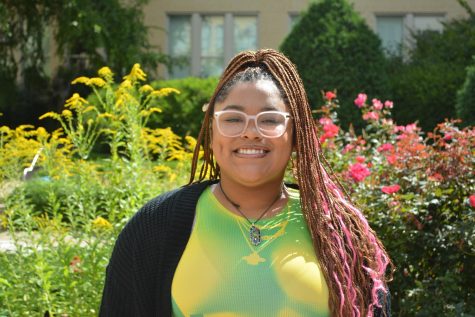
Amaia is a senior and this is her first year with the champion. Amaia is part of multiple clubs including MEC for I-Days and AAM, which she co founded...

